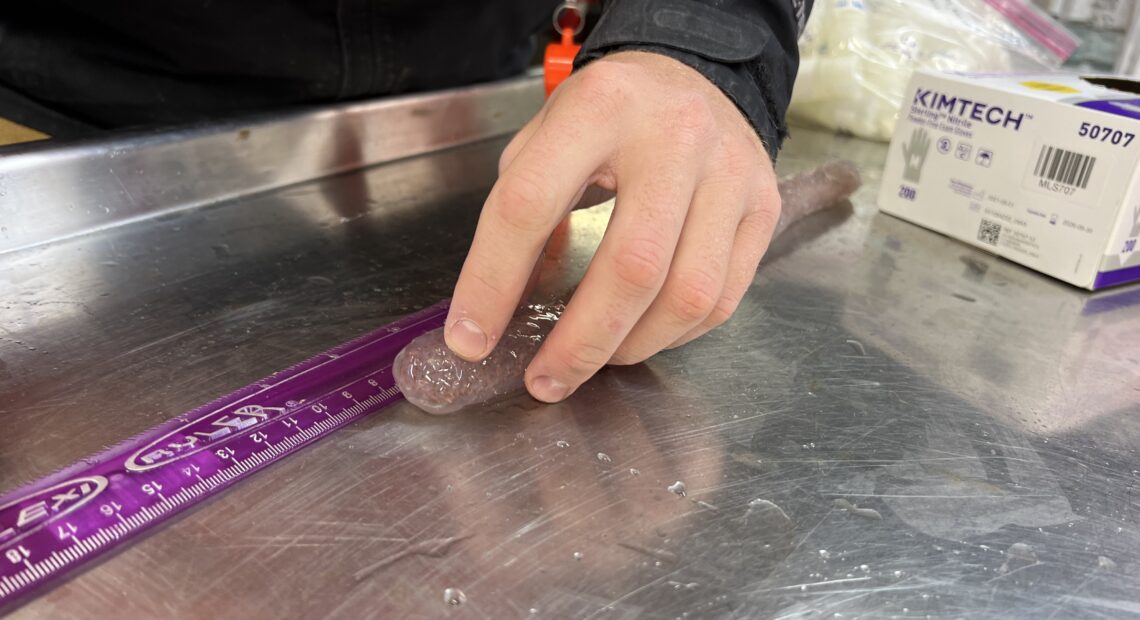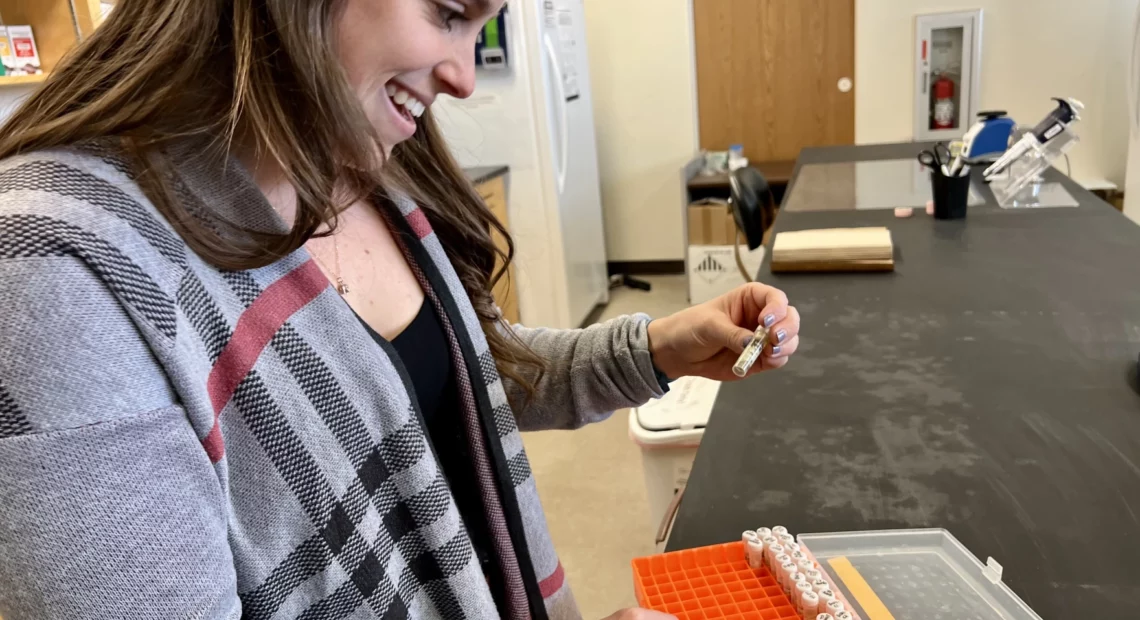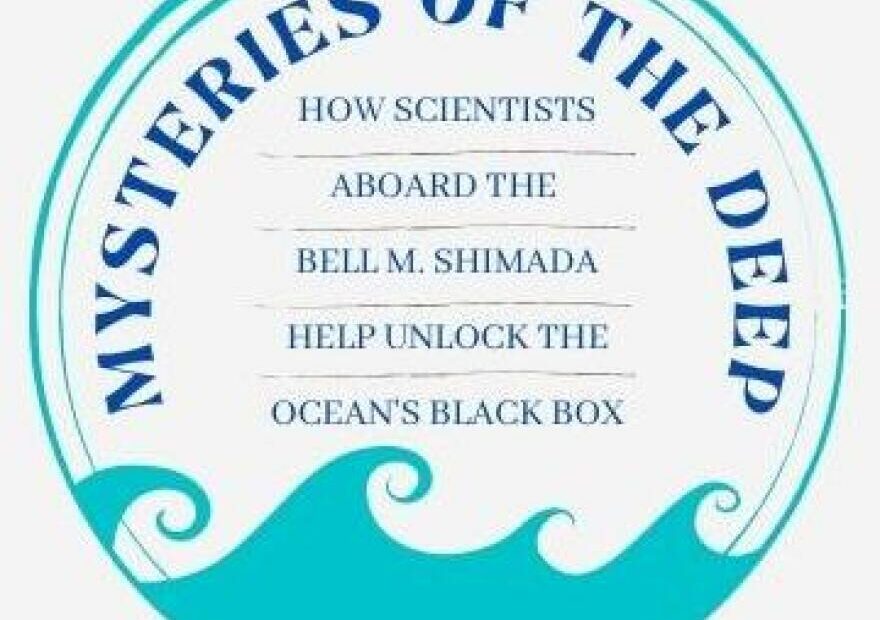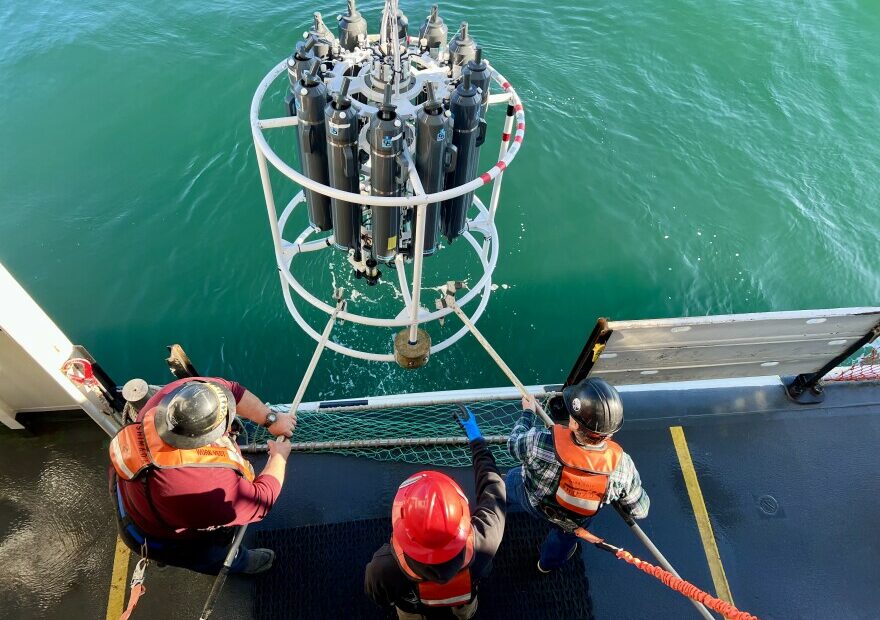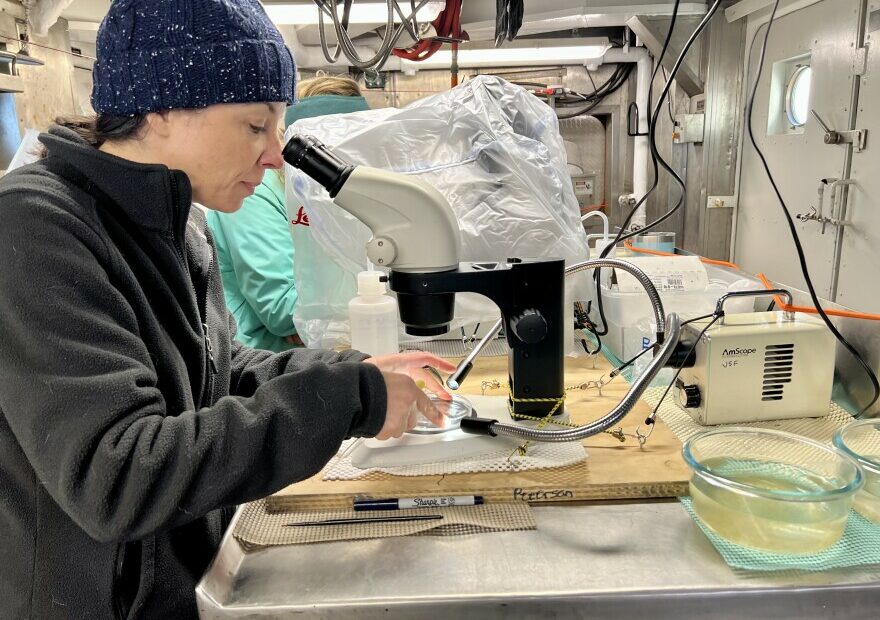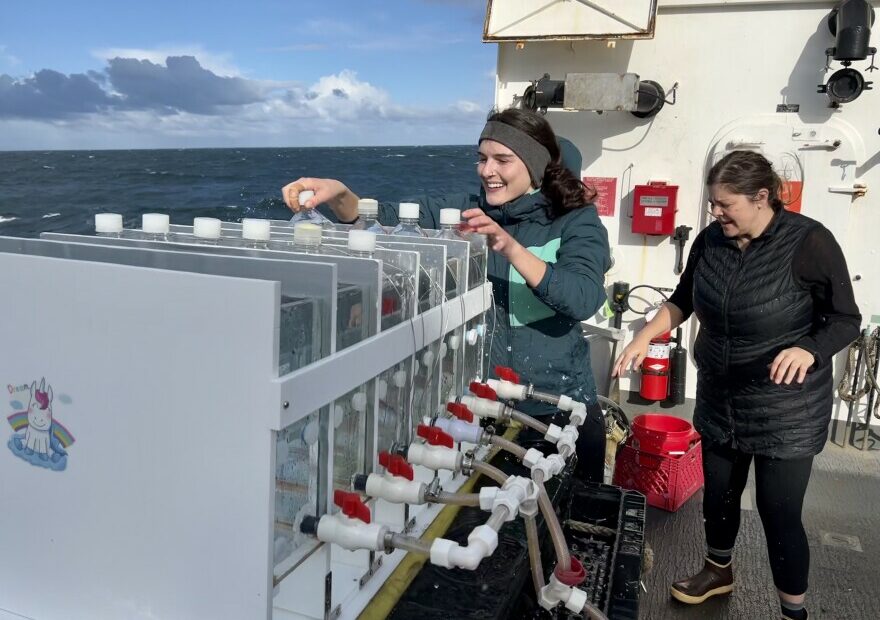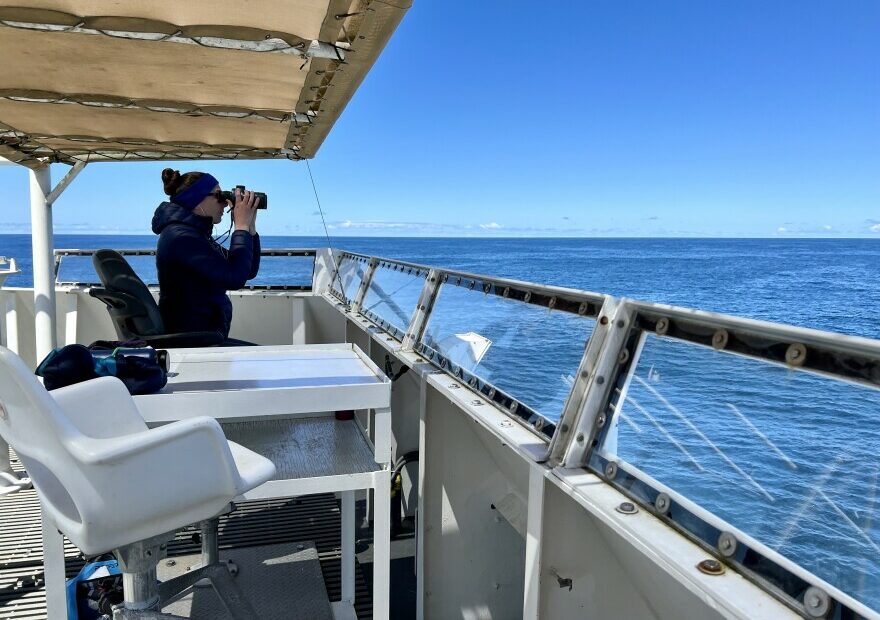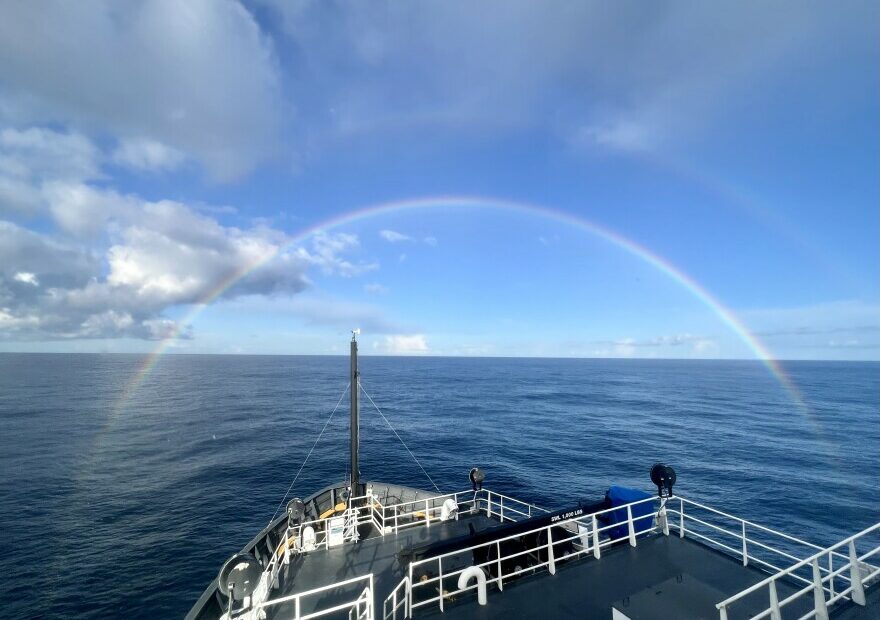Scientist Kris Bauer measures a pyrosome that was caught in a net aboard the Bell M. Shimada in May 2022. (Credit: Courtney Flatt, Northwest News Network) Listen (Runtime 0:59) Read […]Read More
A growing technology is helping scientists save time and effort when they study rare critters and vast places.Read More
Part 1: To Unravel Some Of The Ocean’s Mysteries, Scientists Head To Sea At least twice a year, scientists board the Bell M. Shimada, a National Oceanic and Atmospheric Administration […]Read More
The Bell M. Shimada is designed to gather scientific information. But the collaborative effort of the crew and officers makes scientific endeavors at sea possible.Read More
One single-celled oceanic organism could provide big answers to questions about climate change.Read More
Phytoplankton make up an extremely important part of the ocean’s food chain, serving as food for organisms that feed young salmon and other fish in the ocean.Read More
Scientists aboard the Bell M. Shimada keep an eye out for whales. One scientist hopes to help predict where whales will show up by studying the food they eat.Read More
At least twice a year, a team of scientists on NOAA's research vessel Bell M. Shimada survey waters along the Washington and Oregon coast.Read More

